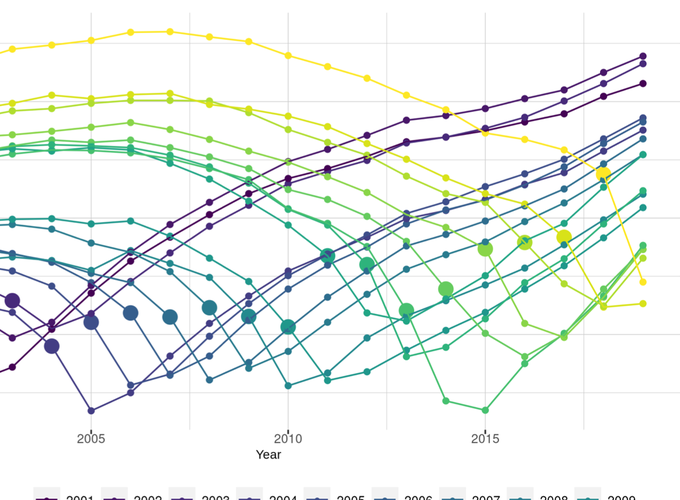 Figure by Joakim A. Weill
Figure by Joakim A. Weill
 Figure by Joakim A. Weill
Figure by Joakim A. Weill
Working paper available upon request
We estimate the dynamic impacts of Housing Choice Vouchers on the residential outcomes of tenants and investigate whether Source of Income (SOI) protection laws, enacted to prevent landlords from discriminating against voucher recipients, actually work to improve the residential outcomes of rental assistance recipients. Combining restricted data on all federal housing voucher recipients followed over the past two decades with a novel dataset of environmental and economic measures resolved at the neighborhood level, we find that vouchers cause recipients to move to poorer neighborhoods in the short-run. However, the effects reverse after two to four years depending on the racial group considered, with near-constant increases in the average neighborhood income of about 1.25% per year. Effects on environmental quality vary between states and racial groups, and strongly depend on the specific environmental outcome considered. All racial groups experience modest but significant improvements in air quality, while White voucher recipients experience large declines in exposure to toxic release facilities, driven by moves to urban areas. In contrast, the effects of Source of Income protection laws are small on average and not statistically different from zero. Overall, our results highlight that housing vouchers successfully steer tenants towards higher quality neighborhoods, but that these benefits take time to materialize. Our results also suggest that other policy tools beside SOI protection laws are needed to tackle SOI discrimination.